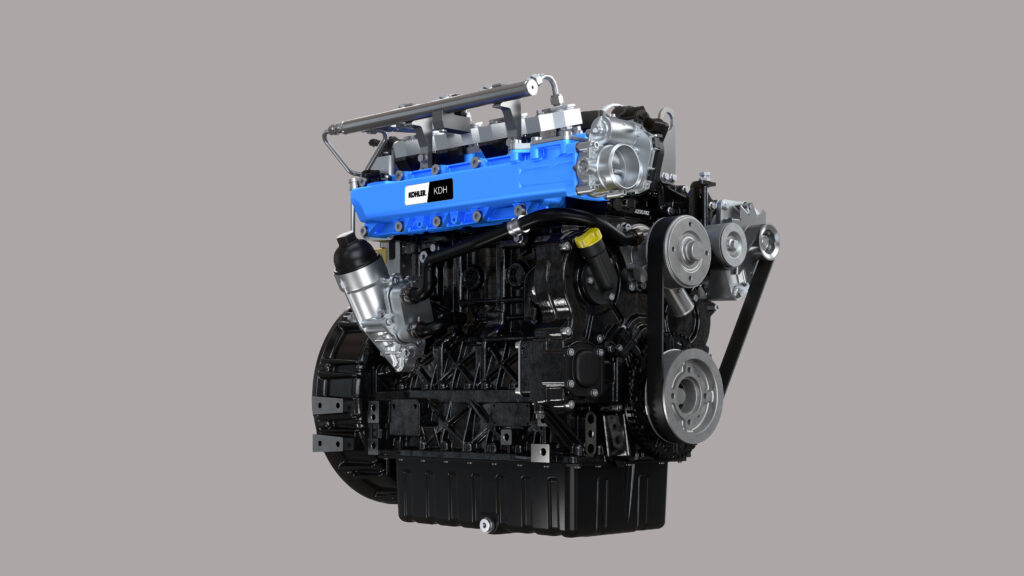Kohler builds hydrogen engine with diesel-like performance
 © Kohler
© Kohler Further backing for the use of hydrogen to power agricultural and other off-highway vehicles has come from US-based engine manufacturer Kohler.
A new hydrogen-fuelled version of the KDI 2.5-litre motor is reckoned to have the same performance characteristics as its diesel counterpart, while producing zero harmful emissions at the tailpipe, and none whatsoever when run on “green” hydrogen produced from renewable resources.
See also: Big tractor engine makers bet on hydrogen as future fuel
Best known for its small petrol engines powering mowers, shredders, pumps and similar, Kohler moved into the mainstream agricultural vehicle market after acquiring Lombardini in Italy.
This is where the KDI family of 1.9-litre three-cylinder and 2.5- and 3.4-litre four-pot diesel engines was subsequently developed.
Installing more compact engines with higher power and torque density has become popular with equipment manufacturers, as after-treatment kit to meet emissions rules has taken up space under the bonnet.
Kohler KDI diesels up to 75hp have been adopted by a number of loader and handler manufacturers, including Avant, JCB, Kramer, Merlo and Weidemann.
Most recently, Argo Tractors began using the 1.9- and 2.5-litre versions in its McCormick X2 49-57hp compact, X3F 55-75hp orchard, and X4 61-75hp utility tractors and their Landini equivalents.
Easy fitment
The hydrogen-fuelled KDH 2504 TCR has been designed as a drop-in solution, so it has the same dimensions, mounts and power take-off locations as the diesel.
It is thought to be much the same in other respects too – apart from having a new cylinder head to accommodate spark plugs and direct hydrogen gas injection.
Power output, peak and low-end torque, transient response (how rapidly the engine responds to throttle inputs), and driveability are all said to match the equivalent diesel.
No after-treatment solutions are needed to meet Euro Stage 5 emissions, says Kohler, but they can be used to reduce particulates, nitrogen oxides and hydrocarbons to “negligible levels”.

